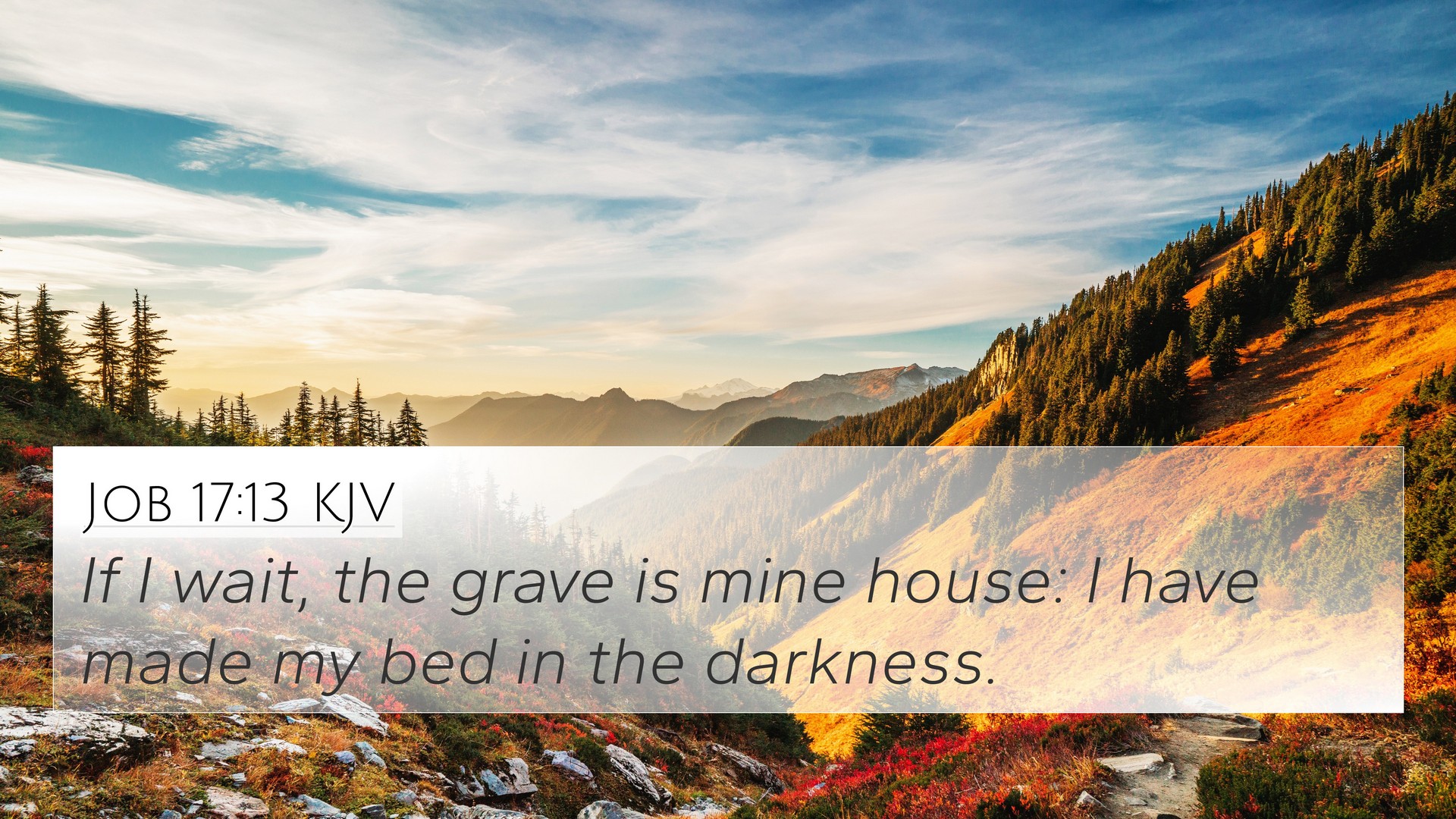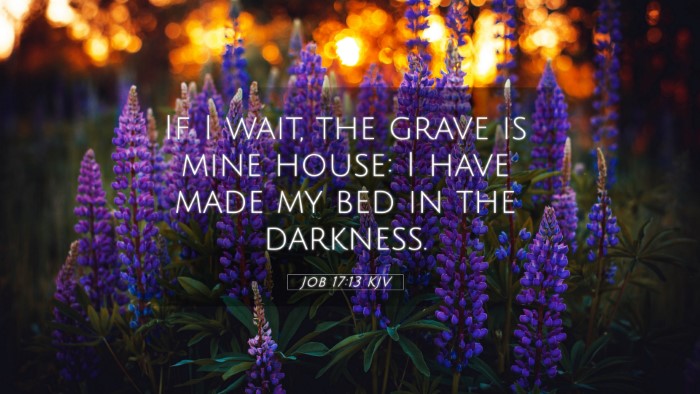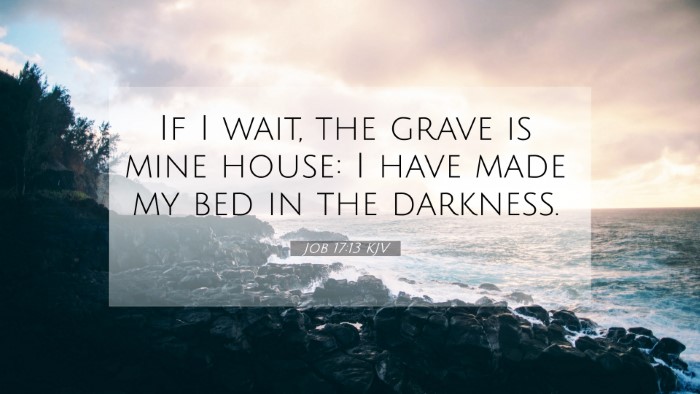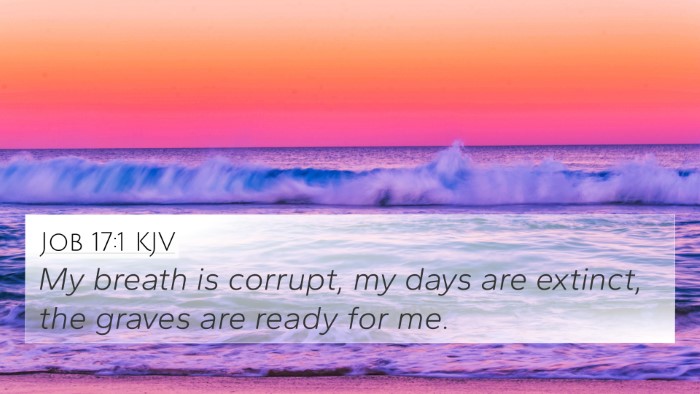Old Testament
Genesis Exodus Leviticus Numbers Deuteronomy Joshua Judges Ruth 1 Samuel 2 Samuel 1 Kings 2 Kings 1 Chronicles 2 Chronicles Ezra Nehemiah Esther Job Psalms Proverbs Ecclesiastes Song of Solomon Isaiah Jeremiah Lamentations Ezekiel Daniel Hosea Joel Amos Obadiah Jonah Micah Nahum Habakkuk Zephaniah Haggai Zechariah MalachiJob 17:13 Similar Verses
Job 17:13 Cross References
If I wait, the grave is mine house: I have made my bed in the darkness.
Uncover the Rich Themes and Topics of This Bible Verse
Listed below are the Bible themes associated with Job 17:13. We invite you to explore each theme to gain deeper insights into the Scriptures.
Job 17:13 Cross Reference Verses
This section features a detailed cross-reference designed to enrich your understanding of the Scriptures. Below, you will find carefully selected verses that echo the themes and teachings related to Job 17:13 KJV. Click on any image to explore detailed analyses of related Bible verses and uncover deeper theological insights.
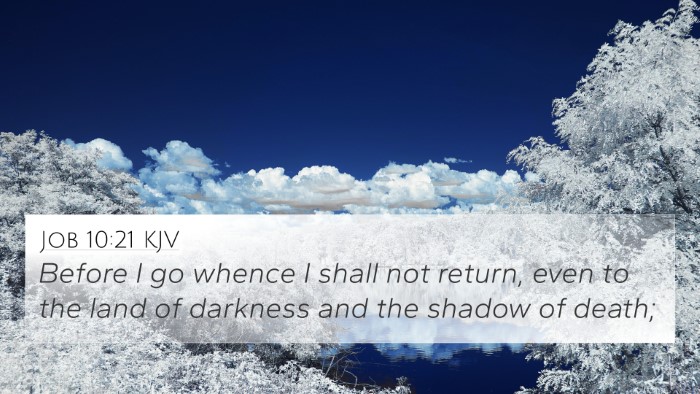
Job 10:21 (KJV) »
Before I go whence I shall not return, even to the land of darkness and the shadow of death;

Job 30:23 (KJV) »
For I know that thou wilt bring me to death, and to the house appointed for all living.
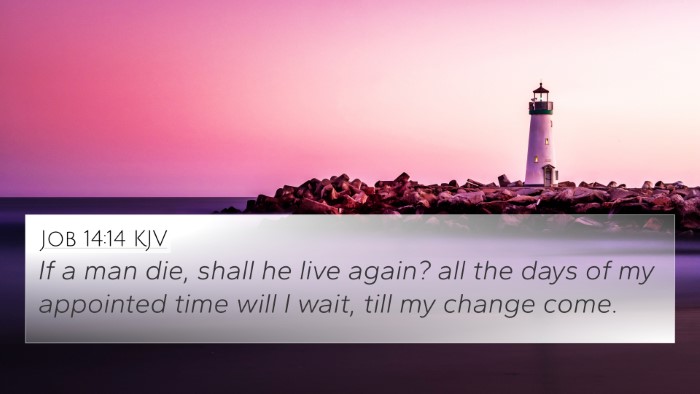
Job 14:14 (KJV) »
If a man die, shall he live again? all the days of my appointed time will I wait, till my change come.

Job 3:13 (KJV) »
For now should I have lain still and been quiet, I should have slept: then had I been at rest,

Psalms 27:14 (KJV) »
Wait on the LORD: be of good courage, and he shall strengthen thine heart: wait, I say, on the LORD.
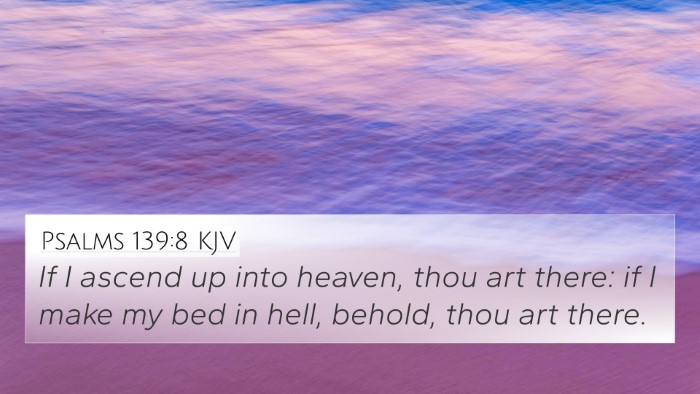
Psalms 139:8 (KJV) »
If I ascend up into heaven, thou art there: if I make my bed in hell, behold, thou art there.
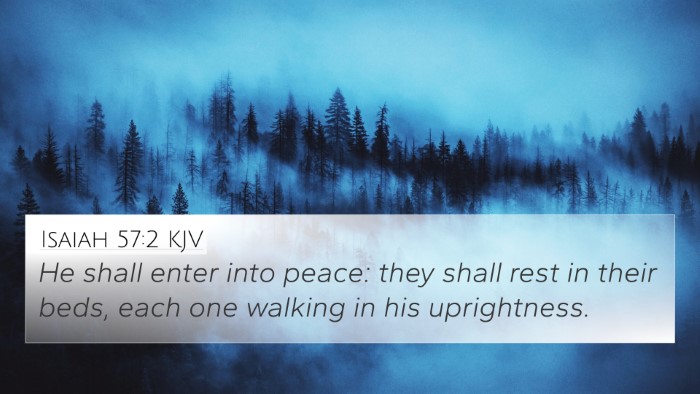
Isaiah 57:2 (KJV) »
He shall enter into peace: they shall rest in their beds, each one walking in his uprightness.

Lamentations 3:25 (KJV) »
The LORD is good unto them that wait for him, to the soul that seeketh him.
Job 17:13 Verse Analysis and Similar Verses
Understanding Job 17:13
Job 17:13 states, "If I wait, the grave is mine house: I have made my bed in the darkness." This verse reveals Job's deep anguish and his contemplation of death amid his suffering.
Verse Meaning Overview
In this verse, Job expresses a profound connection to death and despair. The grave is depicted as a house, signifying Job's resignation to his fate. He implies that waiting any longer may lead him into darkness—death, which he metaphorically refers to as making his bed. This highlights Job's intense suffering and isolation, illustrating his mental and emotional state.
Commentary Insights
-
Matthew Henry's Commentary:
Henry notes that Job recognizes the inevitability of death and speaks of it in a familiar tone as a residence. The darkness he mentions symbolizes both physical death and spiritual gloom.
-
Albert Barnes' Notes:
Barnes emphasizes Job's despair, indicating that he feels abandoned and sees death as a place of rest from his torments. Job’s grief leads him to view the grave as a comforting refuge.
-
Adam Clarke's Commentary:
Clarke asserts that Job is identifying his profound sense of hopelessness, expressing a desire for the end of his suffering. The metaphor of making his bed in darkness underlines his feelings of loneliness and despair.
Cross-References and Thematic Connections
Job 17:13 has numerous connections with other Bible verses that explore similar themes of suffering, death, and the human condition. Below are some relevant cross-references:
- Psalms 88:3: "For my soul is full of troubles..." - Reflecting a similar anguish and darkness.
- Ecclesiastes 3:20: "All go to one place; all are from the dust, and to dust all return." - Acknowledges the inevitability of death.
- Isaiah 38:17: "Behold, for peace I had great bitterness..." - Similar expressions of despair and longing for peace in death.
- Hebrews 9:27: "It is appointed unto men once to die..." - The certainty of death emphasized in the New Testament.
- 1 Peter 5:10: "After you have suffered a little while..." - Discusses the temporary nature of suffering.
- Revelation 21:4: "And God shall wipe away all tears from their eyes..." - The hope beyond suffering and death.
- Job 14:14: "If a man dies, shall he live again?" - Job's profound questioning of life and death.
Exploration of Themes
This verse serves as a poignant reminder of the themes of existential despair, the contemplation of death, and the human condition in the face of overwhelming suffering. It parallels the struggles of various Biblical figures who express similar feelings of abandonment and hopelessness.
Connecting Biblical Texts
In studying Job 17:13 using a Bible cross-reference system, readers can delve into deeper theological insights about suffering and mortality. It's essential to utilize tools such as a Bible concordance or Bible cross-reference guide to navigate these connections effectively.
Resources for Cross-Referencing
To better engage with cross-referenced themes, consider these resources:
- Tools for Bible Cross-Referencing: Bibliographies, software, and guides that consolidate references.
- How to Use Bible Cross-References: Methods to deepen study by relating scriptures.
- Comprehensive Bible Cross-Reference Materials: Resources that compile extensive linkages between texts.
- Cross-Referencing Bible Study Methods: Strategies to employ cross-references in personal study or sermon preparation.
Conclusion
Job 17:13 encapsulates the profound human struggle with despair and mortality. By employing comparative Bible verse analysis and connecting themes across scriptures, we can enrich our understanding of not just this verse, but the collective narrative of human suffering and divine promise throughout the Bible.
